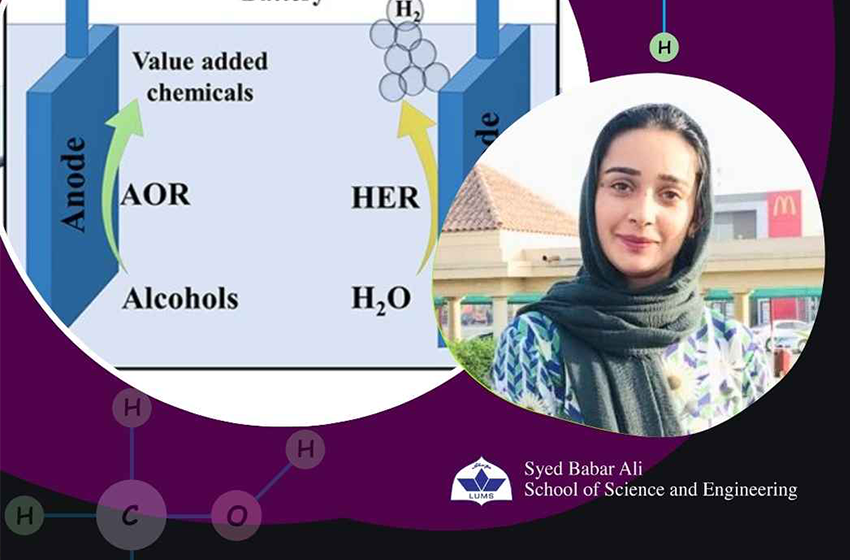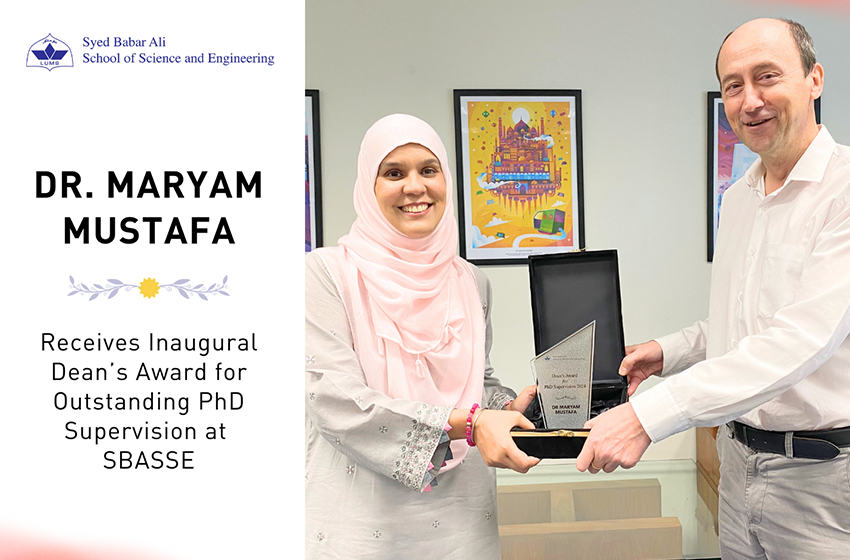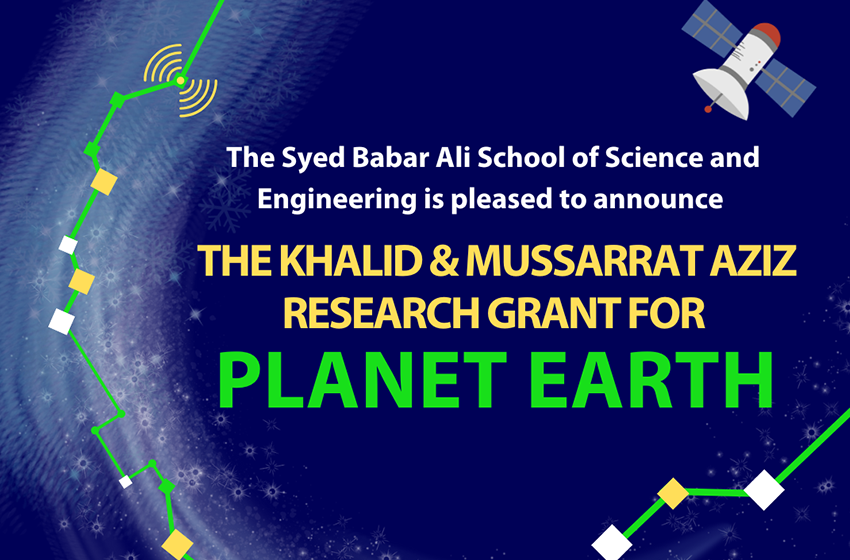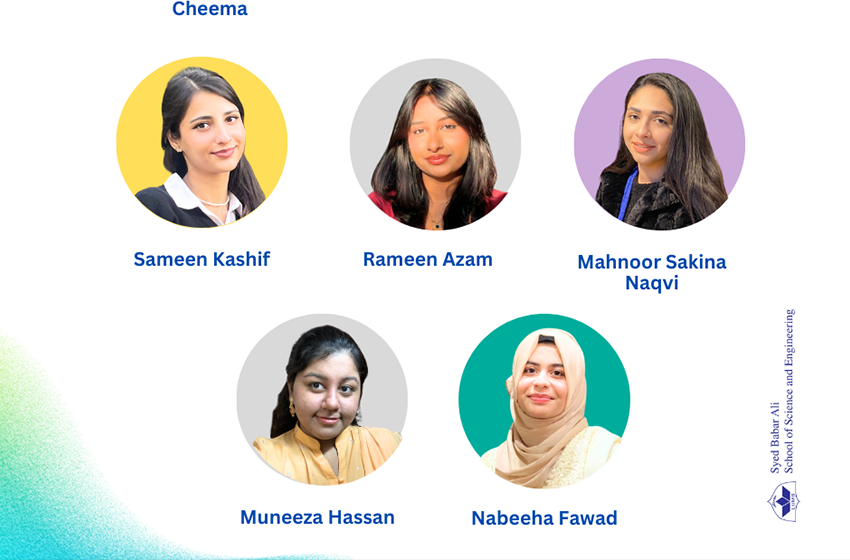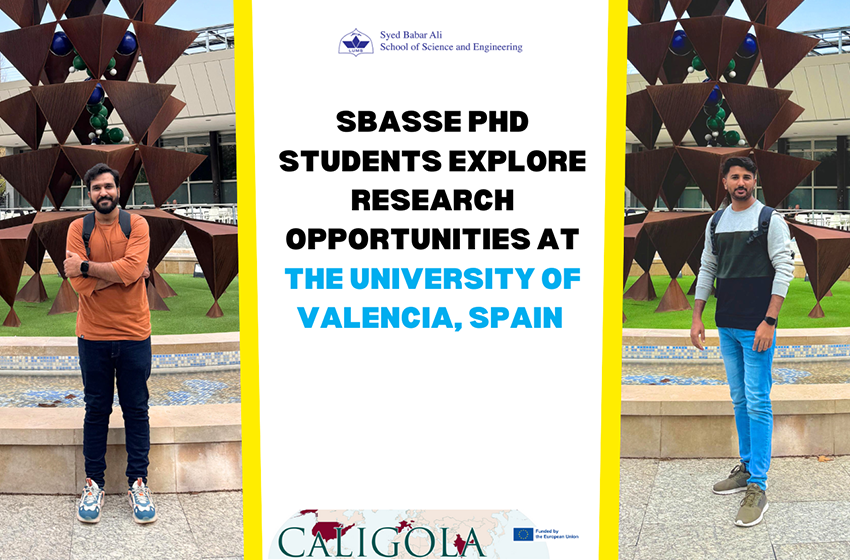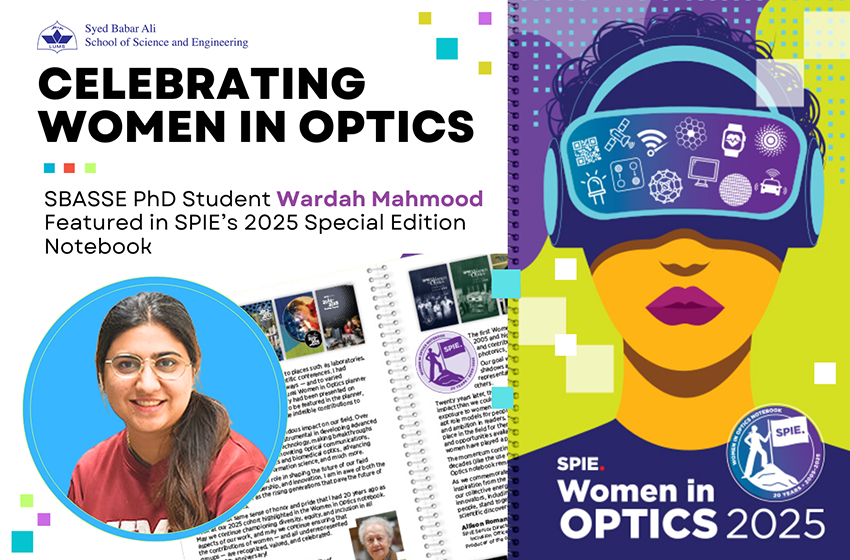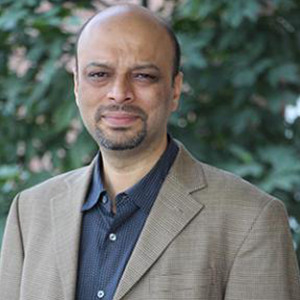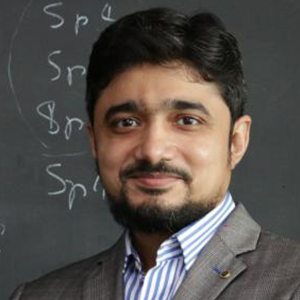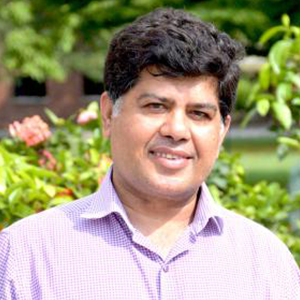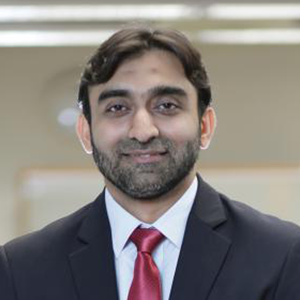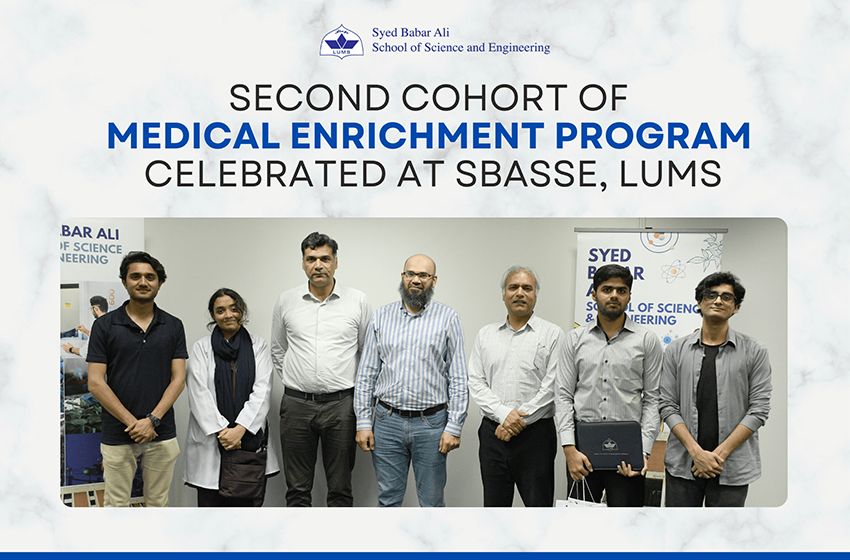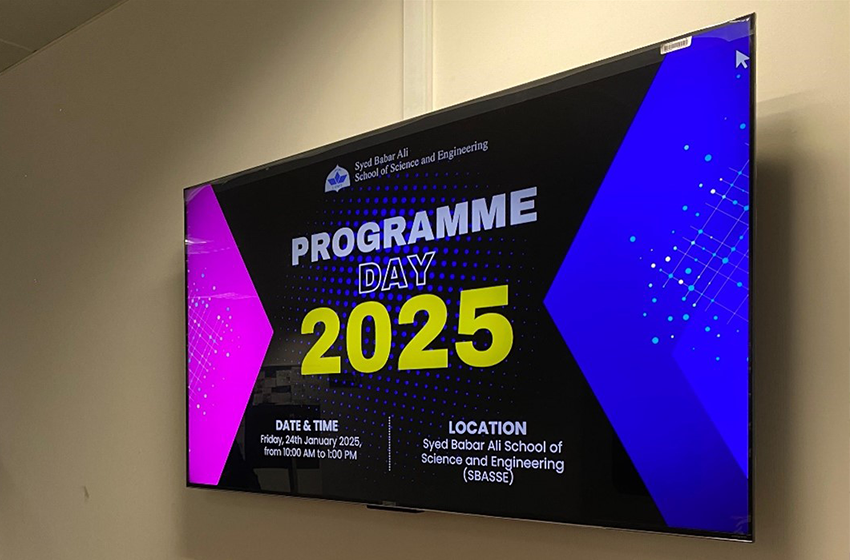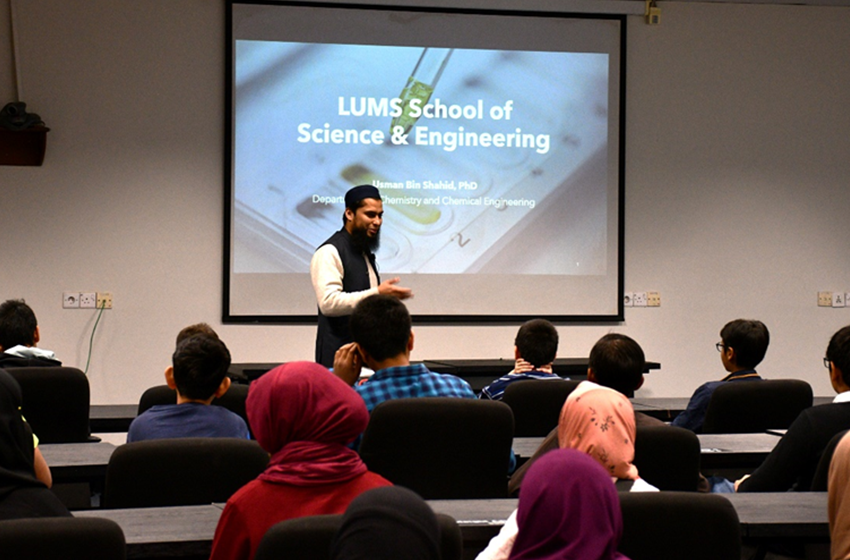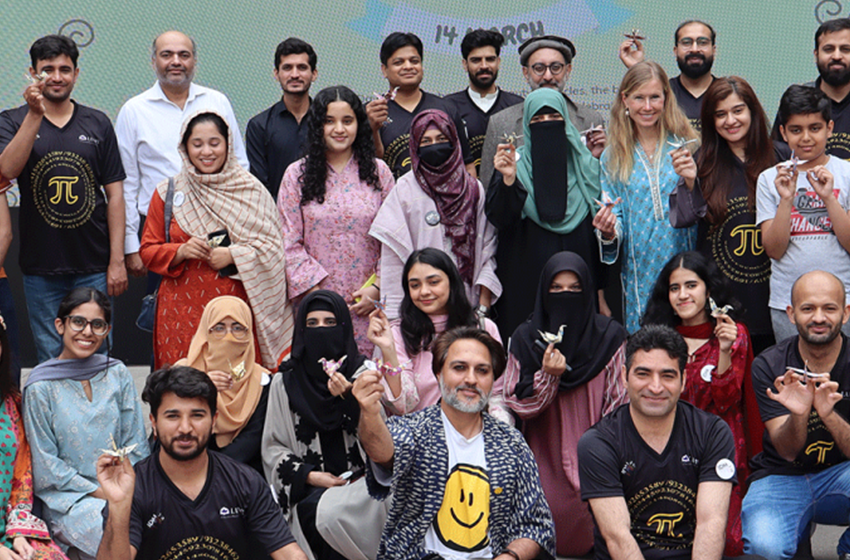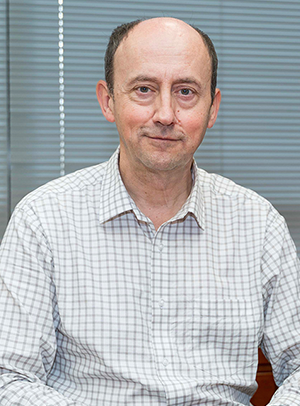
Message from the Dean
The academic year 2024-25 was another highly successful one for the faculty, staff and students at the Syed Babar Ali School of Science and Engineering (SBASSE). In addition to many impressive individual achievements, we developed new courses, research activities and outreach projects while continuously striving to improve our existing offerings.
This was the first year in which our new MS degree in Artificial Intelligence (MS AI) was offered, and it has proved exceptionally popular, with around 80 students enrolled in 2024-25 and even higher application numbers for 2025-26. The Departments of Electrical Engineering and Computer Science worked together to develop this programme, which incorporates weekend teaching to enable enrolment by working professionals. To strengthen our other graduate programmes, we are introducing courses to develop students’ transferable skills. For example, this Fall saw the first offering of a new course, ‘STEM Teaching in the AI Era’, which greatly enhanced the all-round communication skills of those who took it. The end-of-course student presentations on topics ranging from phishing to forensic science were especially impressive.
At the undergraduate level, we have added new and innovative courses, including ‘The Universe Around Us’, an introductory astronomy course with a much-appreciated practical component that is popular with students across the entire university, and ‘SSE - 101’. The latter is a novel small-group course taken by all SBASSE freshmen, designed to encourage discussions with SBASSE faculty in a less formal setting on topics ranging from settling into university to effective study methods and career prospects. We also organised a special event for freshmen to learn about the research carried out in the SBASSE departments.
Research by faculty and students has not only made important contributions to addressing societal challenges here in Pakistan but has also received considerable international recognition. For example, a team including Dr. Zubair Khalid from Electrical Engineering won the ACM Gordon Bell Prize for Climate Modelling, the top award in this field, while Dr. Irshad Hussain from Chemistry and Chemical Engineering was awarded a Chinese Academy of Sciences PIFI Distinguished Scientist Fellowship. International links are key to many of our activities. New interdisciplinary research projects, one on energy-efficient cooling solutions from Dr. Faheem Hassan Akhtar (Chemistry and Chemical Engineering) and the other by Dr. Asim Karim (Computer Science) have attracted significant international funding. Conferences and programmes such as the International Mathematics Master also bring distinguished visitors to SBASSE. The IEEE Workshop on Control and Modelling for Power Electronics (COMPEL) held at LUMS last June was particularly notable in this respect.
Both faculty and students are highly active in outreach activities. Our Math Circles, which bring SBASSE faculty and school kids from across Pakistan together at events demonstrating the beauty and versatility of mathematics, go from strength to strength, as does our Research Internship in Science and Engineering (RISE) programme. This year, over thirty SBASSE faculty mentored RISE students. In other initiatives, Life Sciences faculty delivered valuable training to medical students and professionals through the Ferozsons Initiative for Research Excellence and our partnership with Shalamar Medical and Dental College, while Chemical Engineering faculty ran a successful competition for students across Pakistan. Furthermore, LUMS student outreach achieved especially impressive impact through societies such as SPADES, the Society for Promotion and Development of Engineering and Sciences, LUMS Women in Computing, and LUMS Students' Mathematics Society.
This year, we were very happy to welcome new Teaching Fellows and Lecturers to SBASSE and are delighted that Dr. Aeysha Khalique (Physics) and Dr. Saqib Ilyas (Computer Science) have joined us as newly appointed associate professors. We also sincerely congratulate those of our colleagues who have received well-deserved promotions. Dr. Muhammad Saeed (Chemistry), Dr. Agha Ali Raza, Dr. Mobin Javed, Dr. Zafar Ayyub Qazi (Computer Science), Dr. Khurram Bashir, Dr. Muhammad Shoaib (Life Sciences), Dr. Haniya Azam (Mathematics), and Dr. Ammar Ahmed Khan (Physics) have been made tenured associate professors. Dr. Falak Sher, Dr. Basit Yameen (Chemistry), Dr. Basit Shafiq, Dr. Ihsan Ayyub Qazi (Computer Science), and Dr. Zartash Afzal Uzmi (Computer Science/Electrical Engineering) have been promoted to Full Professors. I thank them and all the members of SBASSE for their contributions to the School.
Dr. Walther Schwarzacher
Ahmad Dawood Chair and Dean,
Syed Babar Ali School of Science and Engineering
Awards, Fellowship and Students Achievements
Research Advancements
Dr. Zubair Khalid named the first Pakistani recipient for the prestigious Gordon Bell Prize in Climate Modelling
Dr. Zubair Khalid from the Department of Electrical Engineering, in collaboration with researchers from KAUST, the University of Notre Dame, Saint Louis University, the National Center for Atmospheric Research (NCAR), and NVIDIA, has won the prestigious Gordon Bell Prize for Climate Modelling. This is a significant achievement, as it marks the first time a Pakistani researcher has been selected for this global recognition.
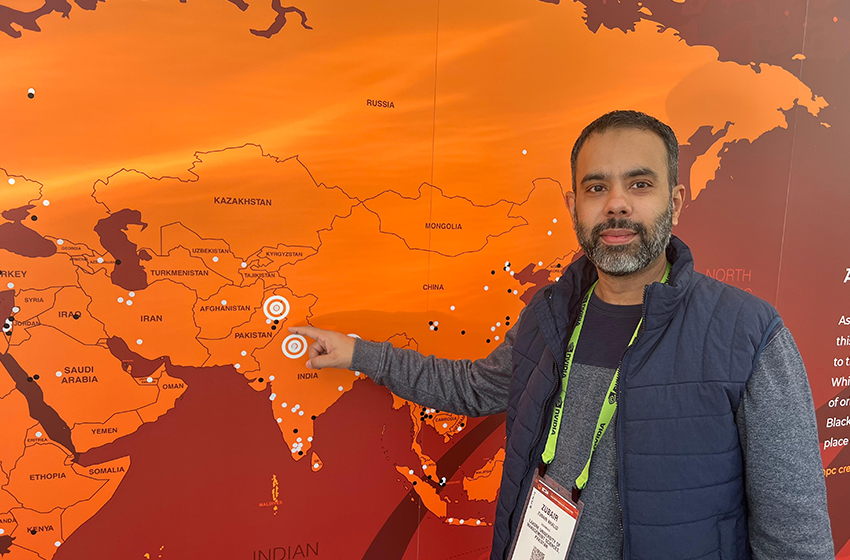
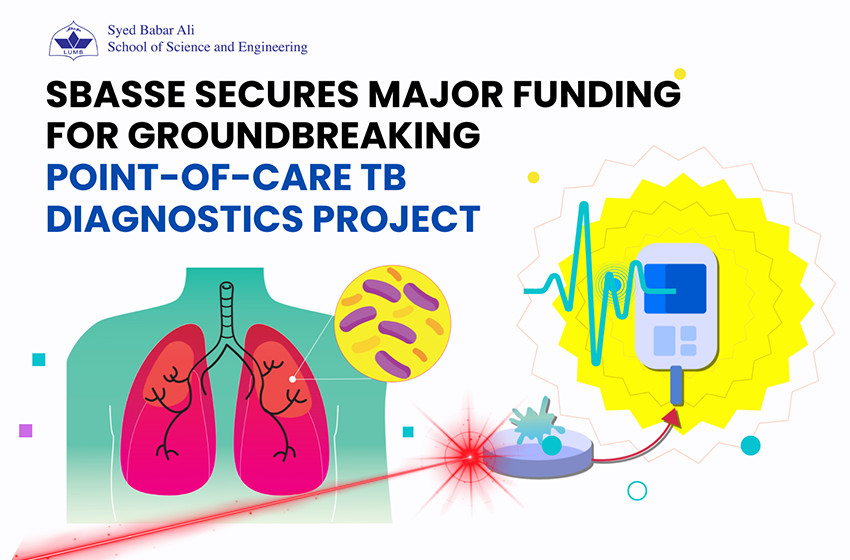
SBASSE Secures Major Funding for Groundbreaking Point-of-Care TB Diagnostics Project
A multidisciplinary team from SBASSE has secured international funding for an innovative project to transform tuberculosis (TB) diagnosis in Pakistan and beyond. This achievement results from a collaborative effort between SBASSE, Gulab Devi Hospital Lahore, and the University of Bergen, Norway.
Dr. Maryam Mustafa’s Work in Digital Health Featured by Gates Foundation
Dr. Maryam Mustafa, Assistant Professor at SBASSE and Co-founder of Awaaz-e-Sehat, has been featured by the Gates Foundation for her innovative work in digital health. Her project, ‘Awaaz-e-Sehat: Empowering Maternal Healthcare with Voice-Enabled Electronic Record Management’, utilises AI to enhance maternal healthcare in Pakistan.
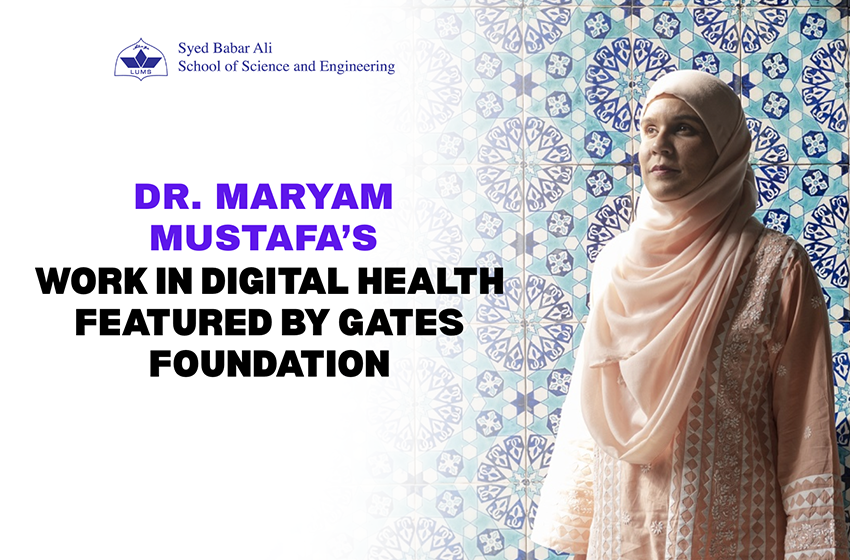
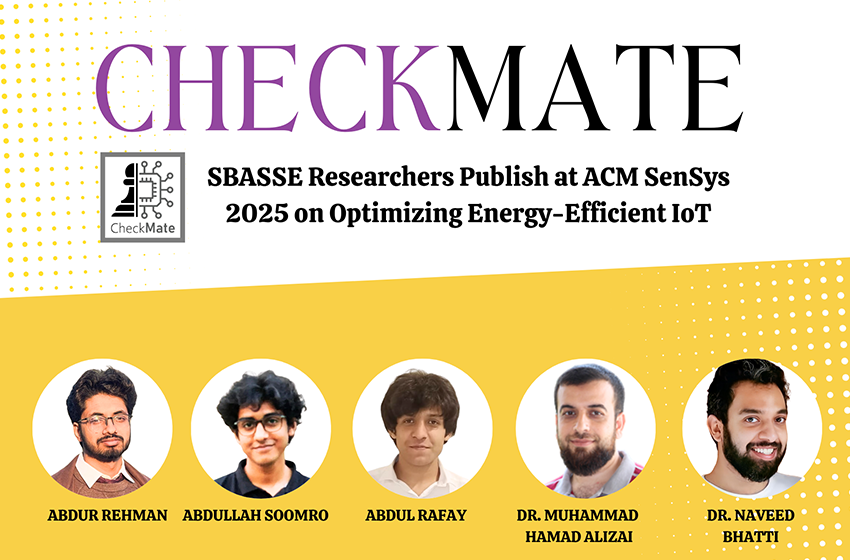
SBASSE Researchers Publish at ACM SenSys 2025 on Optimizing Energy-Efficient IoT
SBASSE researchers presented CheckMate at ACM SenSys 2025, an automated framework that uses large language models to improve energy efficiency in batteryless IoT devices. Originally developed as a course project, the work highlights how small approximations can lead to significant power savings with minimal impact on accuracy.
Chemistry & Chemical Engineering and CS Faculty Secure the UKRI Award 2024 for their Project ‘S2Cool’
LUMS researchers Dr. Faheem Hassan Akhtar and Dr. Asim Karim are part of the UKRI-funded S2Cool project, aimed at developing energy-efficient, low-carbon cooling technologies. Supported by the Ayrton Fund, this global collaboration advances SBASSE’s mission of sustainable, interdisciplinary research.
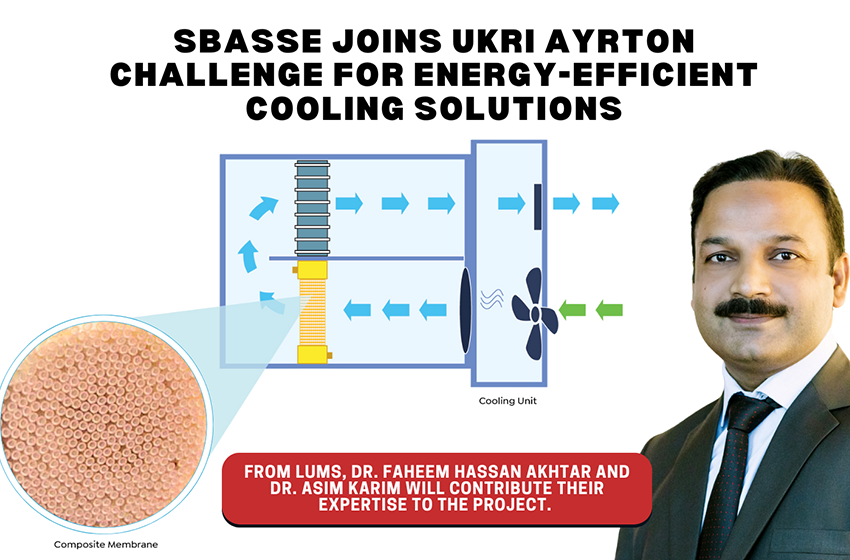
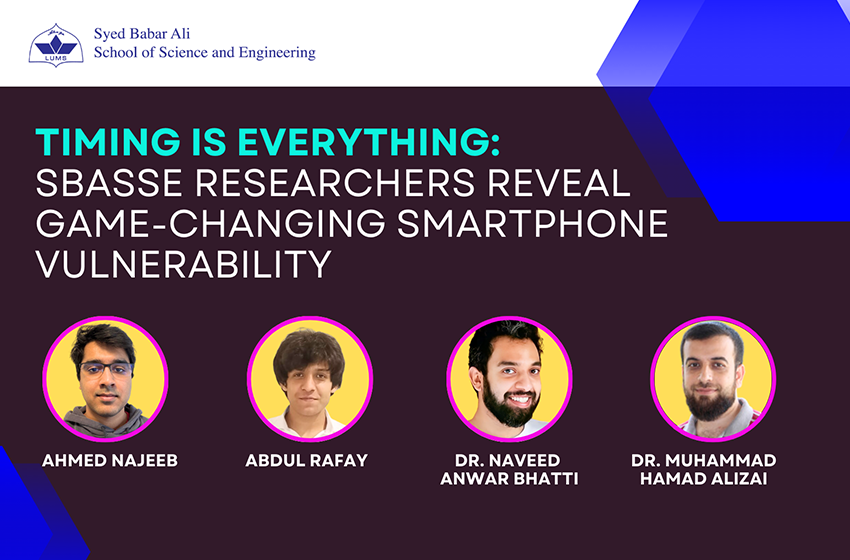
SBASSE Researchers Uncover Vulnerability in Smartphone Technology; Discovery Published In AsiaCCS 2025
Dr. Naveed Anwar Bhatti, Dr. Muhammad Hamad Alizai, and students Ahmed Najeeb and Abdul Rafay have uncovered a smartphone vulnerability that enables voice command reconstruction without user permission. Their research paper, ‘Glitch in Time’, has been accepted to AsiaCCS 2025 (Core Rank A), highlighting a critical privacy concern through the exploitation of sensor timing misalignment.
LUMS Researchers Explore Safer, Greener Catalysis for Drug Discovery
Dr. Ghayoor Abbas Chotana and his team have introduced a safer, more sustainable catalytic approach for Sulfur (VI) Fluoride Exchange (SuFEx) reactions. Published in Advanced Synthesis & Catalysis, their work streamlines sulfonamide production using affordable organic bases and highlights the unexpected catalytic role of glassware, advancing green chemistry in drug discovery.
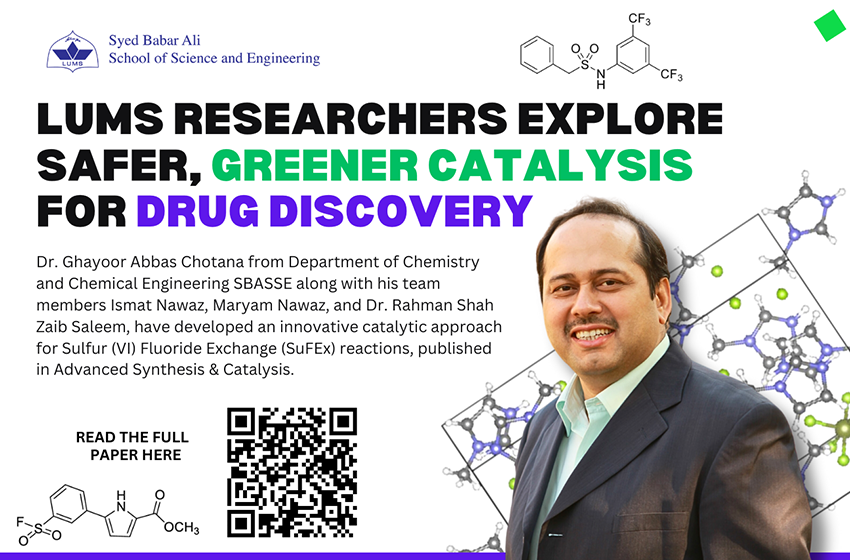
Promotions and Tenures
Events, Talks and Seminars
Two Cultures Initiative: Talk with Dr. Azra Raza, Author of The First Cell
In a series of thought-provoking talks, Dr. Azra Raza, a globally renowned oncologist, author of The First Cell, and advocate for patient-centred cancer care, captivated audiences with her vision for revolutionising cancer detection, the profound wisdom of poetry, and the urgent need for collaboration across disciplines.
From quoting Ghalib and Emily Dickinson to urging young minds to embrace Urdu literature and interdisciplinary learning, Dr. Raza’s sessions were a masterclass in bridging science and the human spirit. Her insights left students, faculty, and community members deeply inspired.
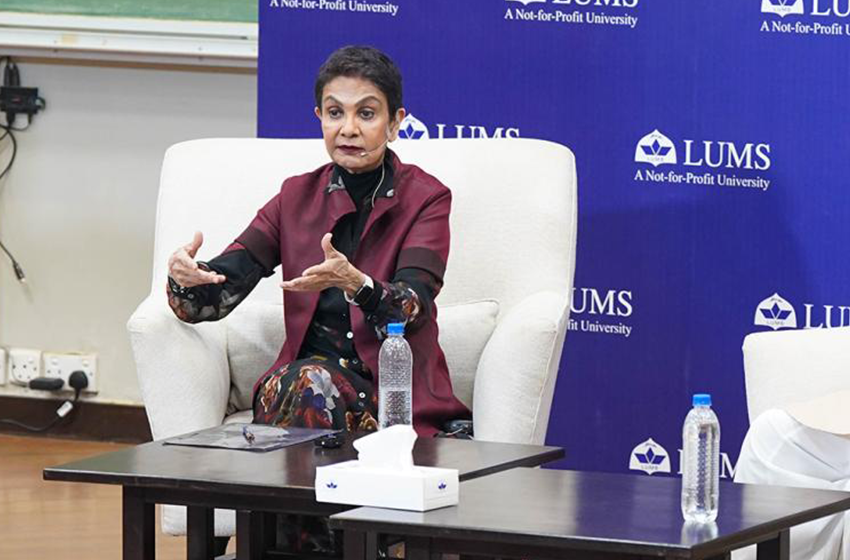
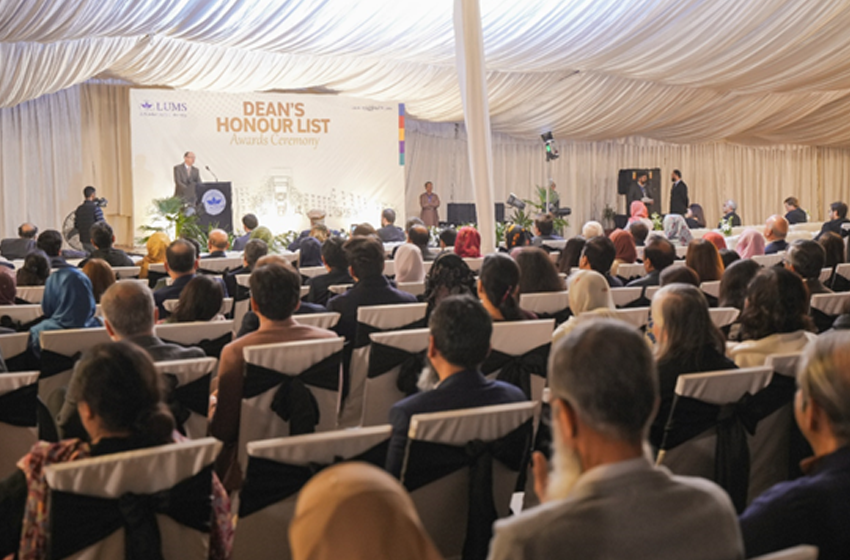
Dean’s Honour List Ceremony 2025
The annual Dean’s Honour List Ceremony brings together students, faculty, and parents to celebrate outstanding academic achievements. This year’s ceremony at SBASSE was attended by the Vice Chancellor, the Provost, faculty members, and General (R) Ghulam Mustafa Kausar, Chairman FAST Cables. Their presence highlighted the significance of the occasion, as they shared insights on perseverance, intellectual growth, and the impact of education.
25th SBASSE Advisory Board Meeting
The 25th SBASSE Advisory Board Meeting took place at LUMS from January 29 to 31. Advisory Board members held meetings with the technical and administrative staff, providing an open space for feedback and discussion. Faculty members also participated in individual meetings with AB members. The event included MS and PhD research poster sessions, where students had the opportunity to showcase their work. A key highlight was the public lecture by Prof. Sarah Thompson, an Advisory Board member, titled ‘Electronics in a Spin?’ where she shared her expertise on the latest advancements in electronics.
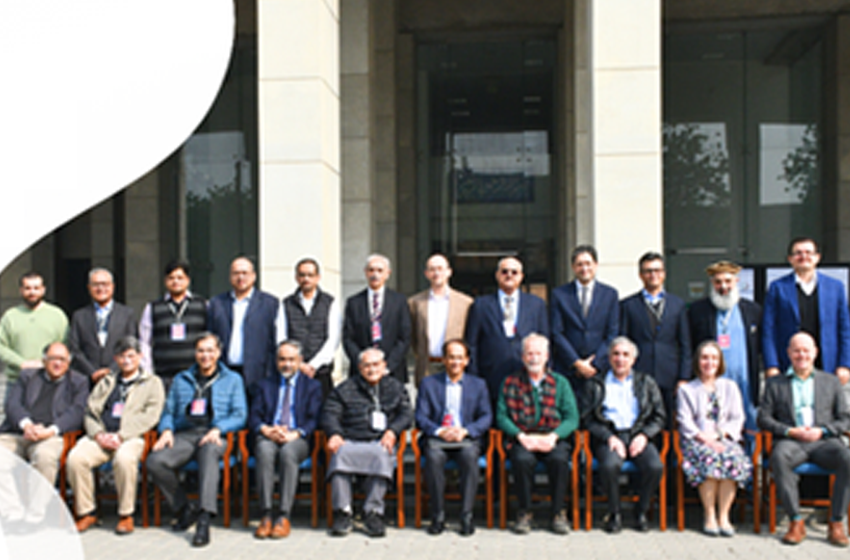
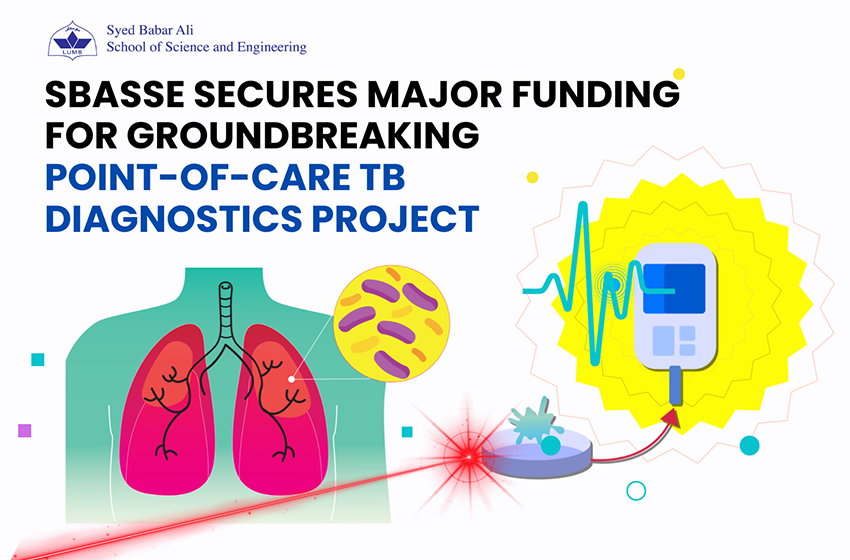
SOE-SBASSE Collaborative Workshop: Advancing Education Through Technology
In February 2025, educators, technologists, and policymakers gathered at LUMS for a workshop on ‘Capacity Building in Online Education in Pakistan’. Hosted by SOE and SBASSE, with support from the Erasmus+ project RAPID, the event explored innovative pathways for digital learning in Pakistan.


